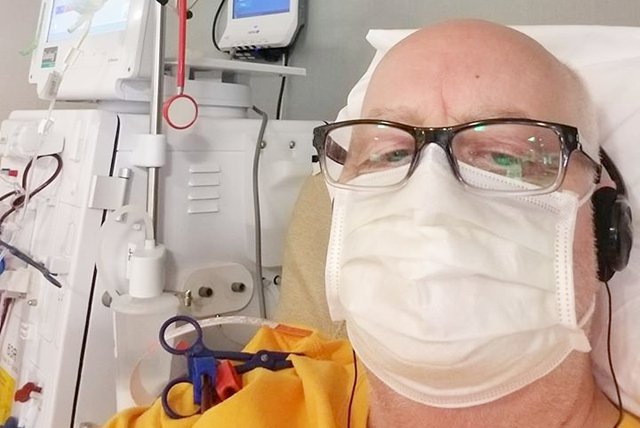EASTMAN - Two doctors who successfully treated Eastman’s Craig Bell for his COVID-19 infection last month took the time to discuss that treatment and the COVID-19 pandemic.
Dr. Joe Poterucha is the Chair of Pediatrics and the Chair of Intensive Care Unit at Mayo Clinic Health System - Franciscan Healthcare in La Crosse. His specialties are Pediatrics, Internal Medicine and Critical Care.
Dr. Mike Harrison's specialties are Emergency Medicine and Critical Care at the Mayo Clinic Health System.
Both doctors credited Craig Bell’s recovery from COVID-19 in the hospital’s ICU to a team effort. They explained that every ICU patient has a dedicated nurse available 24 hours a day, as well a respiratory therapist. There are several others working with the patient at times as well, including a physical therapist, a social worker and a nutritionist.
Harrison noted that Bell’s need for kidney dialysis following the ICU experience may or may not need to be permanent. The doctor said the need could be permanent, but saw signs with the patient’s release that indicated it might not need to be.
How is COVID-19 treated in the hospital?
“There’s no cure for COVID," Dr. Harrison noted. “It's all supportive to help in fighting the infection.’
Harrison indicated that if Bell had gotten to the hospital earlier with a diagnosis of COVID the results might have been about the same. He would have rested in the hospital as the disease progressed.
Nevertheless, Dr. Harrison explained Craig Bell was lucky to get to the hospital when he did. After being initially accepted in the COVID unit, Bell was worse within the hour and was taken to the ICU.
“He (Bell) was by far the sickest patient we have seen. He was extremely sick with multi-organ dysfunction,” Dr. Poterucha noted.
Dr. Harrison explained that mortality is more commonly associated with older age–people over 80 years old. Bell is 59. Other factors leading to increased chances of death from the infection are suffering from chronic disease or having a compromised immune system.
Both doctors enjoy the high-pressure situation they experience in the Intensive Care Unit.
“It’s where all the action is, but it’s definitely not for everybody,” Dr. Harrison said.
Harrison came to work in LaCrosse from Rochester at Dr. Poterucha’s request.
Dr. Harrison said that treating Bell without his family being present was an incredible challenge. He had many phone conversations with Julie Bell, Craig’s wife.
At one point in consultation with other medical professionals, it was decided to flip the patient onto his stomach to improve oxygen intake. The position created a bigger risk if Bell experienced cardiac arrest.
“My concern was that he might not survive the ICU,” Harrison said.
In the ICU Bell was given medicine that paralyzed him and was heavily sedated.
“His lungs needed a lot of support,” Harrison explained. “Paralyzing him helped us breathe for him.”
Like Craig Bell, Dr. Poterucha had effusive praise for the nurses and others working in the ICU.
“These young people…on the front lines are putting their life at risk (to help patients).”
“We doctors get too much credit. We need to recognize the front-line providers. The people who are the boots on the ground those are the true heroes.”




